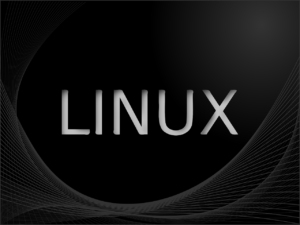Python is a popular programming dialect in the twenty-first era. Understanding Python can help you advance in your computer engineering profession.
However, as a beginning, we often have problems choosing the best educational journey, and we usually wind up squandering a substantial amount of time trying to figure out which resource is the best. When most developers begin discovering new things, they frequently end up accumulating various courses on their computer or USB drive, which is not a good habit to pursue.
We'll discuss various approaches to learning Python quickly.
-
First, know the lingo.
We must first grasp how or where the syntax is utilized before we can study it. Python is implemented in a variety of domains, including website development, data research, machine learning, and systems engineering. Because it is hard to know about all subjects at once, we must concentrate on the critical principles we need to master and continue appropriately.
-
Cover the following python basics.
At the very least, you and your guide must go through the basics. If you don't comprehend them, you'll have trouble working with complex challenges, initiatives, or using instances.
-
Set a study objective for yourself.
Make a study objective for yourself before you begin learning Python. When you keep your aim in mind, the problems you meet when you start studying will be simpler to conquer. Furthermore, you'll realize what study materials to concentrate on or scan over in order to achieve your objectives. If you wish to study Python for data processing, for instance, you'll need to perform assignments, build functions, and understand Python modules that help with the analysis of data.
-
Anaconda speeds up the Python configuration.
You can either install the Python setup file from the Python Software Foundation webpage and then source and retrieve increased libraries, or you can download the Anaconda software package, which also includes several of the bundles you'll need, particularly if you intend to use Python for data processing or predictive analysis.
-
Learn Python virtually with the help of a Python teacher.
Online Python tutors can assist you with basic Python programming principles as well as more sophisticated Python programming topics. Tutors can offer a wide range of disciplines and levels, allowing you to select the one that perfectly suits your needs.
Most tutors will set up a free video call with you to discuss your requirements and understand more about your unique requirements. Python is actually becoming a popular online tutoring subject that is well adapted to being delivered in an online classroom.
Students can now present their progress in actual time in a shared Code Editor, allowing educators the opportunity to provide assistance at the same time. Furthermore, learners feel more at ease going through their coding challenges onscreen since they can consider everything without having to worry about someone watching over their shoulder. This makes individuals feel more comfortable, leading to improved comprehension and memory.
-
As you discover, put it into practice.
Python is no exemption to the rule that the easiest way to study something is to put it into practice. You ought to get your hands filthy with it if you understand it via an online class or a textbook.
Turn on your laptop, configure your coding set up, and begin coding. For instance, if you've learned about conditional loops, use them to create a numerical lotto.
For a better outcome, you may also tweak it with if-else expressions. If you're adopting a new Python library, you can turn it into a tiny venture, and this will significantly enhance your comprehension of the idea.
-
Consider picking up a Python library to grasp.
It's helpful to master single or multiple Python libraries supplementary to Python. Libraries are specialized sets of functions that act as "catalysts." You'd have to build your custom code to do particular jobs if you didn't have them. Pandas, for illustration, is a well-known library for modifying data in tables. Numpy is a Python library that aids in the execution of arithmetic and scientific operations on arrays.
-
Set a timetable for studying Python and adhere to it.
The majority of people skip this step, resulting in difficulties or stoppages. All that's needed now is to construct a schedule. Set up at least two weeks to spread out your studies and assure that you have enough opportunity to reflect the Python foundations, practice coding in the IDE, and debugging code.
Troubleshooting mistakes is a component of the difficulty and pleasure of studying Python or any computer program. You'll be surprised about how far you've progressed after the initial 2 weeks. You'll have sufficient experience to go on to something more complex supplied by your selected provider.
-
Associate yourself with people who are eager to study.
Though programming may appear to be a lonely job, it is more effective when done in groups. When creating the project in Python, it is critical that you associate yourself with other individuals who are practicing as well. You'll be able to offer the tips and techniques you pick up along the journey.
Conclusion
Though Python is a straightforward language to acquire, even for amateurs, it may take some time to master all of the language's fundamental ideas.
You may quickly comprehend Python's essential principles and field-specific information utilizing the method described above.
The standard Python manual is also an excellent source of information. The key emphasis should be on putting what you've learned into practice; there is no quick way to improve.

